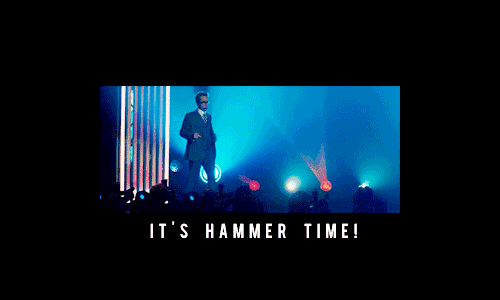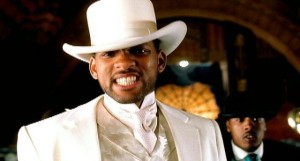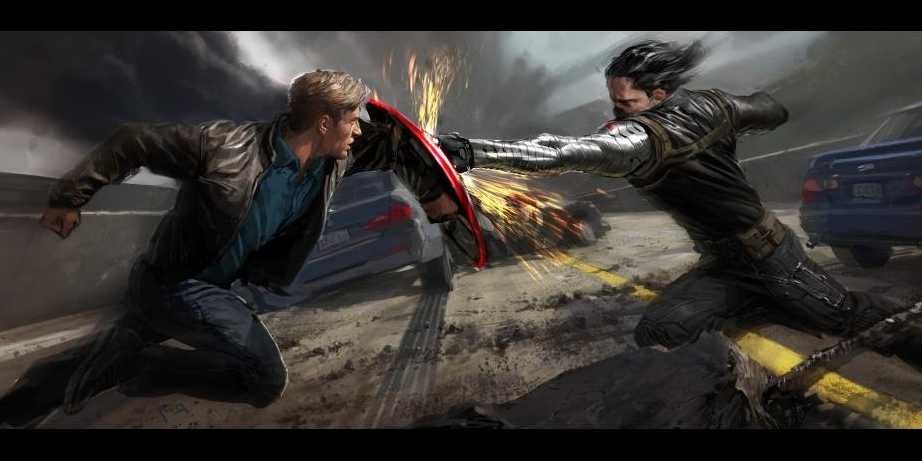*SPOILER ALERT: The Following Article Contains Spoilers for Captain America: The Winter Soldier*
The Marvel Cinematic Universe is on one hell of a successful roll. Captain America: The Winter Soldier opened this past Friday to critical acclaim & a sizable box office weekend. The entire Marvel franchise became the third highest grossing franchise worldwide of all time with a whopping $5.9 billion in worldwide ticket sales and Kevin Feige announced that the MCU has now been planned out until 2028. It’s hard to recall the time when people doubted Marvel would be able to pull this daring idea off back when they announced their intentions around the release of Iron Man. Yet, it has grown into being one of the most successful and adored franchises to ever exist.
Still, not everyone seems too pleased. In a recent article for CinemaBlend.com entitled “Why Marvel’s MadLibs Style of Filmmaking Is Bad For Storytelling,” writer Gabe Toro spoke about his theory that, because lead MCU producer Kevin Feige told Winter Soldier writers Christopher Markus and Stephen McFreely that he wanted to have helicarriers crash during the third act, Marvel is putting the needs of spectacle over those of storytelling. He goes on to criticize familiar recurring elements of the MCU, particularly its pension for callbacks and in-universe jokes which he feels drive focus away from the story, stakes and characters. Now, I have nothing against Mr. Toro or his opinions on The Winter Soldier. I do, however, firmly disagree with pretty much everything he says in the article, from its assertions about Kevin Feige and Marvel based on one quote to its claims about the MCU’s priorities in terms of storytelling. So, rather than mindlessly bitch about Gabe’s opinions in the comments for his article, I have attempted to craft a reasonable retort… which hopefully won’t come off as bitching in essay format.
Now, it seems clear that the idea of a shared universe isn’t as impressive to Gabe Toro as the story or characters are and I actually do agree with that point. The small nods to what has happened and what will come in this universe are nice, but at the end of the day, my opinion on the films is based more on their individual story, direction and overall feel rather than the easter eggs. Toro even brings up one of the more contested entries in the Marvel Cinematic Universe, Iron Man 2, and asserts that The Winter Soldier had even more heavy use of references than it or any other film in the Marvel Cinematic Universe. I couldn’t disagree more with the comparison between the two films. The real issue with Iron Man 2‘s world building isn’t that it exists, but more about how poorly integrated it is into the film’s own story. Instead of having exposition-heavy characters like Black Widow and Nick Fury feel like co-stars who mattered more to the overall story, the two feel like glorified bit players. Sure, Natasha has the fight scene during the climax and Fury gets to talk Avengers with Tony a few times, but what does that really have to do with stuff like the Justin Hammer subplot or the oncoming threat of Whiplash or Tony’s emotional arc of dealing with his mortality? Little to none, unfortunately, and the film suffers for it.

Captain America: The Winter Soldier, on the other hand, seamlessly integrates the small callbacks into the structure of the story. Most of the big references are from Captain America: The First Avenger, showing Steve’s struggle to find connections with people of the modern era. The former love of his life is a dying Alzheimer’s disease patient, his war days have been turned into a museum exhibit of a period long since gone, and his only true friend from childhood has become an equally powerful pawn for the villains with no memory of his past. So, unless we’re going to criticize a sequel for referring to elements from the first film (in which case The Godfather Part II, Terminator II: Judgement Day and Aliens have severe issues with callbacks as well), then there’s really no harm in any of those particular references, especially once it comes to setting up and giving emotional weight to much of Cap’s personal arc.
Toro also name checks several smaller references, including Gary Shandling’s cameo as his Senator Stern character from Iron Man 2, Robert Redford name-checking Iron Man and the introduction of Baron Wolfgang Von Strucker, Quicksilver and The Scarlett Witch during the post-credit scene, saying that they (much like in the earlier mentioned helicarrier quote) felt like executive mandates from Kevin Feige rather than organic elements of the film.
Honestly, I never felt like any of the callbacks detracted from the story in any way whatsoever. It seems as though Marvel learned their mistakes from Iron Man 2 as of late, only really calling back for the sake of a small joke or weave in an existing bit of knowledge from the universe that fits the story of an individual film. The Senator Stern cameo is a perfect example of that. Do you need to remember him to get the joke? Not at all. We see Agent Sitwell working with him and it’s clear he’s some sort of government big shot, which further emphasizes the scope of the inner HYDRA take over of S.H.I.E.L.D. and the joke of the scene only requires knowledge we’ve learned from Captain America: The Winter Soldier.

I think what really sits wrong with me about Toro’s article is the assertion that the quote from Stephen McFreely and Christopher Markus leads him to jump to the claim that Marvel’s main interest is simply setting things up for future movies and having large scale climaxes rather than telling stories. The biggest thing that needs to be made clear for any and all making assumptions like this is that it’s not unheard of for big budget Hollywood film producers to care about elaborate set pieces that will put people in seats. Shocking, I know, that someone who helps to invest millions of dollars into a project would be concerned about trying to get said money back by having certain demands for spectacle in a superhero film, but one has to realize going in that creative compromise is a big component to filmmaking in general. Toro even references the infamous case of creative compromise gone wrong that was producer Jon Peters demanding a giant spider show up in 1999’s Wild Wild West. However, one can note two very distinct differences between West and Winter Soldier: 1) West is a clumsy, unfunny, and poorly written piece of churned out crap that borrows little from its engaging source material and 2) West was a pretty unbearable piece of garbage before we even see one frame of the giant mechanical spider.
It’s quite clear that creative freedom wasn’t a luxury for the team behind the steam punk late 90s western comedy, given both Peters’ notes and the decision to miscast Will Smith in the role of an asshole cowboy secret agent for the government during a time period when he would have most likely been killed in seconds, but it’s not out of the question to think that someone could have written an entertaining blockbuster out of a premise like Wild Wild West, even with bizarre studio mandates. But that really didn’t happen and the film is still detested to this day for more reasons than just the giant mechanical spider.

If anything, one should praise Kevin Feige and Marvel for their tendency to give their writers and directors a larger amount of creative freedom than most other big studio execs. After all, this is the same man who had the balls to let the guy who wrote Swingers make a superhero origins story with dialogue heavily improvised by his actors, gave the man behind The Rocketeer a chance to make a somewhat cheesy 40s adventure romp out of Captain America: The First Avenger and is allowing a director mostly known for disturbing cult films like Slither and SUPER get his hands on an already chancy property like Guardians of the Galaxy. If all he wants in return are a few callbacks and a big set piece, it’s really up to the writers to be able to craft a three dimensional story around what seem to be feasible constraints given the projects. In fact, Captain America: The Winter Soldier is proof enough that you can write a fantastic story despite these demands. Markus and McFreely managed to further develop the characters from the previous film into new untapped areas, introduce & endear the audience to new characters, unravel the complex web of conspiracy that will irrevocably change this universe & its characters permanently and deliver on an exciting action filled climax that also manages to give each major character real closer to their arcs.
Mr. Toro’s article mentions more specific complaints about the film’s structure and supposed plot holes, but I’m not here to hate on his personal opinions on the film, no matter how much I really do disagree. The main thing I wanted to get across is that reducing what the Marvel Cinematic Universe and Kevin Feige are trying to do as merely a spectacle-laden callback engine is quite counterproductive. Each film (for better or worse) is mainly striving to build characters and the universe overall in a way that feels concrete, but not enough to distract from the individual stories. The continuity references really don’t distract that much from the individual story and Feige tends to hire risky creatives & give them more than enough free rein to craft an engaging tale around set pieces that are asked of them. Sure, that doesn’t always guarantee that every film is going to work, but it’s still not enough to point fingers and blame Feige for essentially being a producer with reasonable expectations of a blockbuster film. Creative compromise is all part of the filmmaking process and I’d say Marvel is doing a great job of it.




